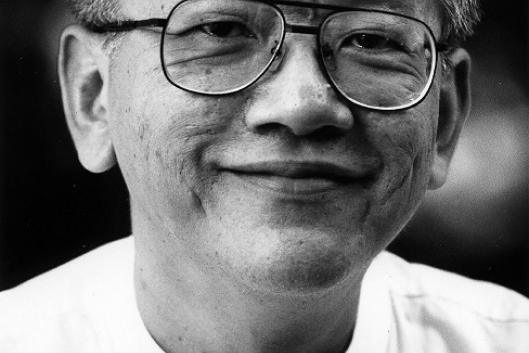Martin Khor (1951-2020), Third World Network's Chairman and former Director, passed away on 1 April 2020 in his home in Penang, Malaysia. Martin was one of the founders of the WRM and his organisation was the first to host the international secretariat. We have received this news with deep sadness and would like to share the following message, written by WRM advisory committee member Larry Lohmann on behalf of the organisation.
Martin Khor Kok Peng was a person who made a lot of good things happen – things whose effects were so lasting and far-reaching that even he might never have appreciated their full impact.
I first met Martin at one of the big international meetings in Penang organized in the late 1980s by Martin and colleagues including Mohamed Idris, Chee Yoke Ling, Meena Raman and Mohan. At this distance in time, it may be hard to appreciate how important such meetings were for the formation of crucial friendships and alliances that have flourished down to the present, including the World Rainforest Movement, which was based in Penang for a decade.
I remember traveling down from Bangkok on the train to Penang with Witoon Permpongsacharoen, the director of the Project for Ecological Recovery, the little Thai environmentalist organization I was working for at the time, for what was I think our first such international gathering. Witoon had grown up in a rural rice-growing village in western Thailand, and I remember trying to translate for him not only what all these people from all over the global South (and the North) were saying, but also why they were saying it, and what the fights were that had led to them saying it, and what he wanted to say to them in return, all the while striving to grasp for myself what a more globalized environmental struggle might look like.
In those days, and for the rest of his life, Martin was a guiding spirit, articulating as no one else could the state of the battle against neocolonialism, economic insanity and environmental injustice. I still remember his cogent global summaries from the 1980s and early 1990s (of course sprinkled with lots of “lah!”s, sometimes ending with a pause, followed by an “isn’t it!”). As well as the paper bulletins and booklets that TWN would send out in brown envelopes all over the world – many of them authored by Martin, Vandana Shiva and other activists whose work has made such a difference over the years. But that, of course, was only the beginning. For decades afterwards, new and old generations of activists and engaged intellectuals from dozens of countries have continued to look to Martin’s work in international politics and economics for inspiration.
For me, what was probably the most remarkable thing about Martin’s leadership was his recognition of the diversity of struggles, and the ways he brought people together and helped them find a role for themselves in new global wholes. Not everyone always agreed with every single element of his strategic thinking, but few could mistake his kindness, his civility, and above all his desire to connect. Although he was always busy, it was in a way that never seemed to impede his efforts to reach out beyond his own personal experience to that of movements and groups where TWN found kinship: small organizations like PER, for example, or indigenous movements (he always pronounced it “indigéneous”) in countries near and far. The global South and its future was always at the centre of his vision, but he never forgot the European, North American and Australian groups and individuals who were also keen to join the struggle.
For all that he gave to global movements, and all that he did to shape them, I would love to be able to say to Martin: we remember.
Larry Lohmann on behalf of WRM
